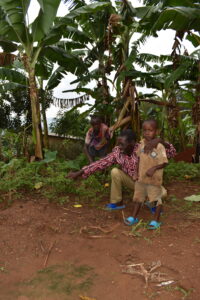Exploring intergenerational legacies of collective violence
 While trauma comes in different forms, a multitude of studies have shown that both individual and collective trauma is ongoing in nature and often has intergenerational consequences. Historical trauma, referred to as a multigenerational trauma experienced by a specific social group, influences how different generations characterize and give meaning to their relationships at family and community level. In Rwanda in particular, accounts of how parents’ experiences of the 1994 genocide against the Tutsi and its aftermath influence the way they raise their children and communicate with them will be presented at the conference. On the one hand, studies suggest that children in diverse ways can be seriously affected by what parents and caretakers transmit to them in terms of memories, attitudes, and emotions. On the other hand, there is also a great resilience among the second generation to live constructively with what is transmitted by their parents, extended family and community members, as well as by public and cultural memory transmission. Nevertheless, research findings point to the need of making the healing and peacebuilding process more inclusive by actively including ‘the generations after’ and ensuring that the issue of intergenerational transmission of traumatic memories to children, is addressed through psychosocial interventions. This helps the community to move away from (potential) feelings of fear, mistrust, hatred, and revenge as well as complex identity problems across the generations.
While trauma comes in different forms, a multitude of studies have shown that both individual and collective trauma is ongoing in nature and often has intergenerational consequences. Historical trauma, referred to as a multigenerational trauma experienced by a specific social group, influences how different generations characterize and give meaning to their relationships at family and community level. In Rwanda in particular, accounts of how parents’ experiences of the 1994 genocide against the Tutsi and its aftermath influence the way they raise their children and communicate with them will be presented at the conference. On the one hand, studies suggest that children in diverse ways can be seriously affected by what parents and caretakers transmit to them in terms of memories, attitudes, and emotions. On the other hand, there is also a great resilience among the second generation to live constructively with what is transmitted by their parents, extended family and community members, as well as by public and cultural memory transmission. Nevertheless, research findings point to the need of making the healing and peacebuilding process more inclusive by actively including ‘the generations after’ and ensuring that the issue of intergenerational transmission of traumatic memories to children, is addressed through psychosocial interventions. This helps the community to move away from (potential) feelings of fear, mistrust, hatred, and revenge as well as complex identity problems across the generations.
Beyond Rwanda, the intergenerational legacies of violence will also be explored in the context of other countries in the Great Lakes Region, including the Democratic Republic of Congo, Burundi and Uganda and embedded in theoretical understandings of these legacies.
